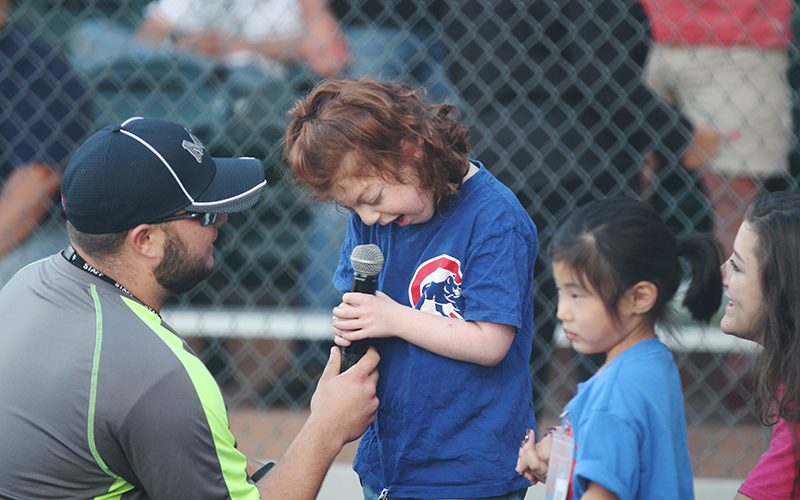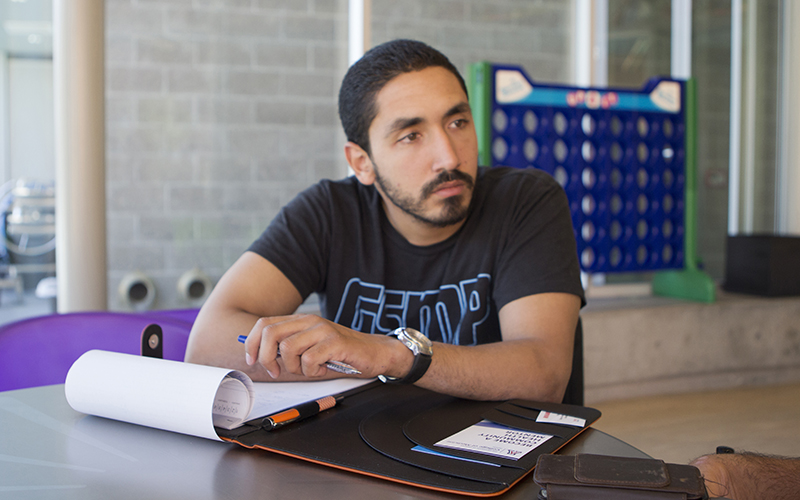PHOENIX — Mohamed Raafat was hanging out at school and perched on a children’s car when a friend abruptly moved it. Just like that, his life changed.
Raafat, then 14, suffered a spinal injury that left him paralyzed from the waist down. Now, 11 years later, he has traveled 7,500 miles to visit Ability 360 in Phoenix to learn more about the growing world of adaptive sports, information he hopes to share with his home country of Egypt.
The Valley is home to several facilities designed to empower people with disabilities and help them pursue their athletic goals.
Mesa-based Arizona Disabled Sports provides sports and recreation opportunities, and Scottsdale’s Miracle League of Arizona offers baseball experiences for those with disabilities or special healthcare needs. Ability 360 offers a 45,000-square foot sports and fitness center.
Since the first Paralympic Games in 1960, the world of adaptive sports has grown exponentially. Greater knowledge of disabilities, from cognitive to physical to visual, brought awareness about the need for more athletic options.
The Americans with Disabilities Act came into law on July 26, 1990. Ramps, elevators and bathrooms that were accessible for the disabled became more available.
And so did facilities that addressed the community’s competitive needs.
“No one is looked at differently or less than, and that’s something that the organization really prides itself on, that we provide that community family environment,” said Tiffany Wilkinson, executive director of Arizona Disabled Sports.
Many have had their lives changed by participating in adaptive sports.
Sarah, who was born with spina bifida and is now in her mid-20s, started playing wheelchair basketball about eight years ago. She also is dealing with a cognitive disability due to a shunt in her brain that was surgically placed to help drain fluid.
Time with her team helped her rely less on her parents, said Wilkinson, who is also Sarah’s former teammate.
“Her mom would always thank us for pushing her to do things herself,” Wilkinson said. “It was nice to see that growth within someone who so heavily relied on their parents to help them do everything.”
The Miracle League of Arizona was the idea of former Diamondbacks pitcher Dan Haren and his father, Dan Sr., who dreamed of building a baseball field designed for children with disabilities. With the help of a $380,000 grant from the Diamondbacks, the dream became a reality and the Dan Haren Jr. Miracle League of Arizona Baseball Stadium opened on March 11.

Abby Sosnow sings during the seventh-inning stretch at the Dan Haren Miracle League Field in Scottsdale. (Photo by Caela Fox/Cronkite News)
“The smiles on these kids faces, playing ball has got to be better than any medicine they’re taking,” said Al Maag, board president of the Miracle League of Arizona.
The facility inspired a young boy to try and walk for the first time without his walker, Maag said. He went with a friend from home to third base and then asked the friend to stop assisting him. He returned to home plate on his own, falling along the way. He persevered and the fans in the stadium cheered.
“As far as we’re concerned, sports activities are vital to the success of some of these kids,” Maag said.
Not only do the kids benefit, but the parents are rewarded by seeing their children happy.
MLAZ wants to inspire the parents as well, from helping them think of new ways to assist their children to finding a deeper connections with them.
“We think we got a winner then,” Maag said.
One sport that has grown significantly in the adaptive sports world is golf, which many experts believe has had a positive impact on those with autism and attention deficit hyperactivity disorder.
A big reason is the structure the sport provides. It helps them stay focused but not feel overwhelmed.
Those with ADHD learn how to focus on one thing at a time. For individuals with autism, it helps develop social skills and can help them feel less isolated.
The focus at the Southwest Autism Research & Resource Center is to help them find a passion, whether it is sports or art or something else.
A sport like golf can help those with autism “practice being out in the community with people who don’t have autism and practice appropriate social skills around a shared interest,” said Daniel Openden, it’s president and CEO.
The opportunities that some take for granted in the United States is almost nonexistent in many other countries, where passage of bills that would address the needs of the disabled has been slow.
Raafat’s goal is to help the disabled community in Egypt have a better experience than he did growing up.
“I got the passion to work with them so I can make the lives of people much easier than mine and hope that they don’t meet the difficulties that I met and my friends met,” Raafat said.
During Raafat’s time in the United States, he has done things he never thought possible. He attended Suns and Diamondbacks games. He went Skydiving, which was the favorite part of his trip to Arizona.
He benefited from his experience at Ability 360, a nonprofit organization that started in 1977 as the Arizona Congress for Action. Its name changed in 1981, the same year it started receiving funds.
Its focus during the past 30 years has been to provide an array of services and programs to people with all types of disabilities. Now it is also helping people around the world start similar programs.
The goal of these organizations, their leaders say, is to make life easier for the disabled and their families and to help them feel more accepted. Adaptive sports help accomplish that goal.
They also try to create a sense of community for those involved at all levels, whether it is the athlete, the family member of the volunteer.
Opportunities should be available. That’s the belief of these facilities in the Valley who hope to make life better for the disabled.
Simply, they say, you should be able to do anything you set your mind to do, disabled or not.
